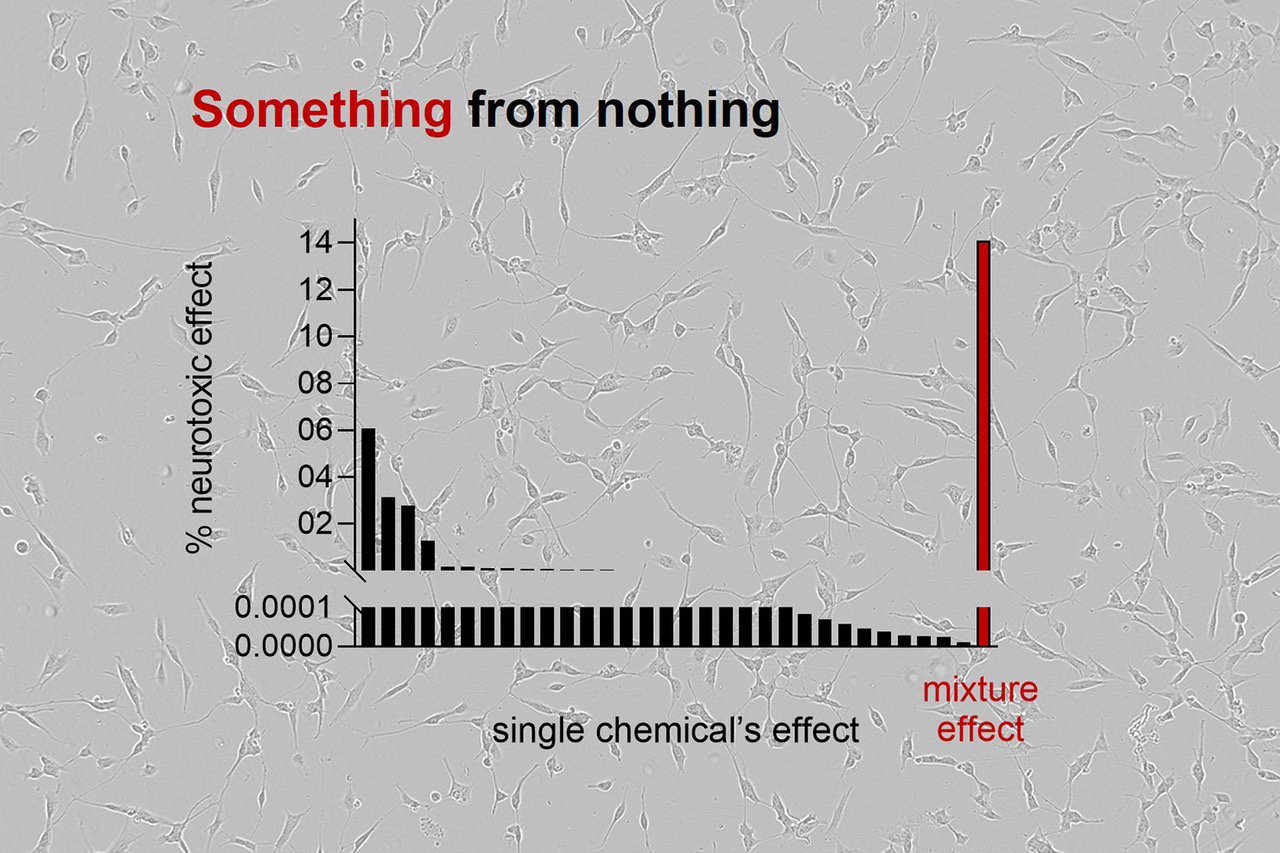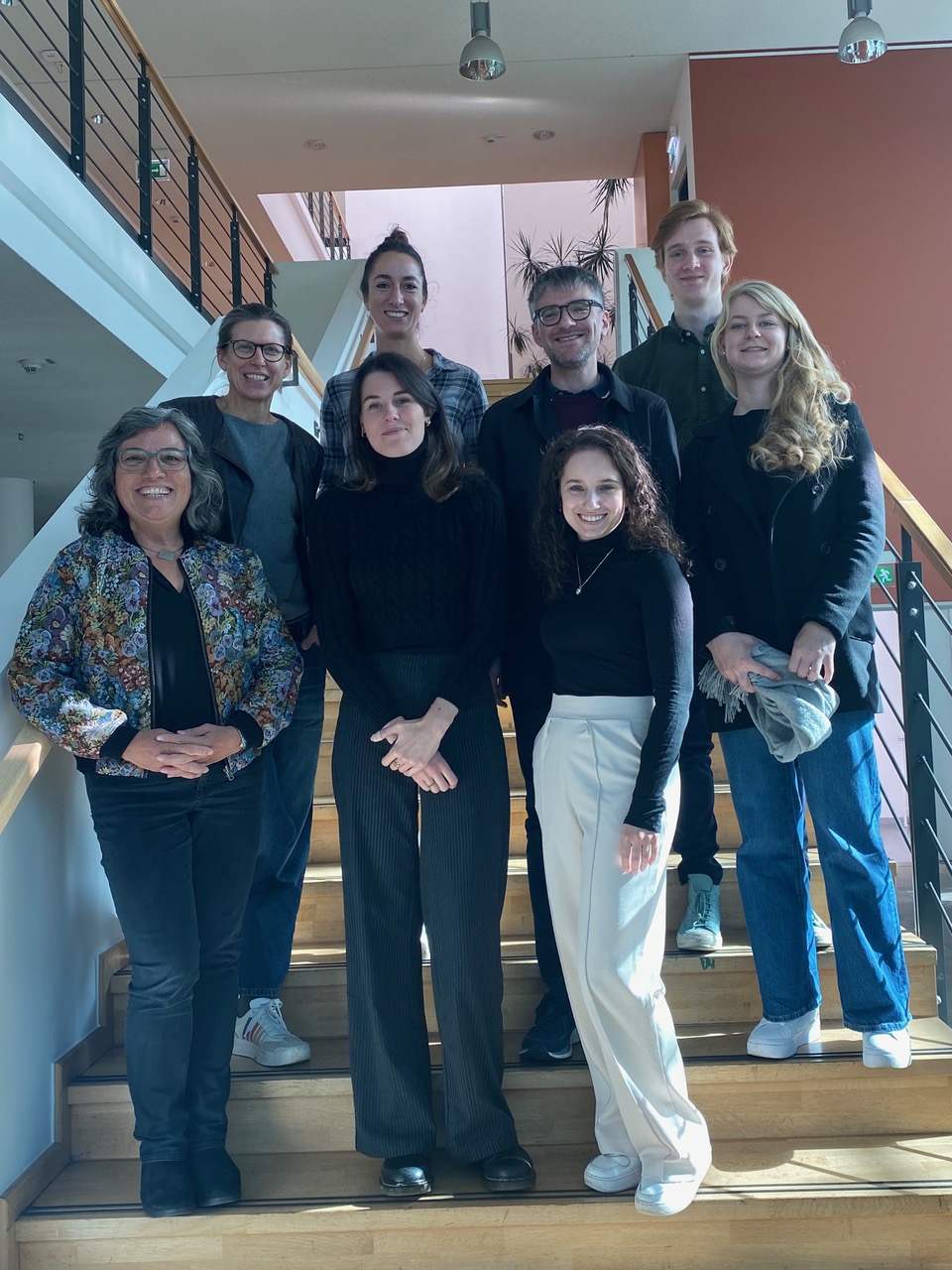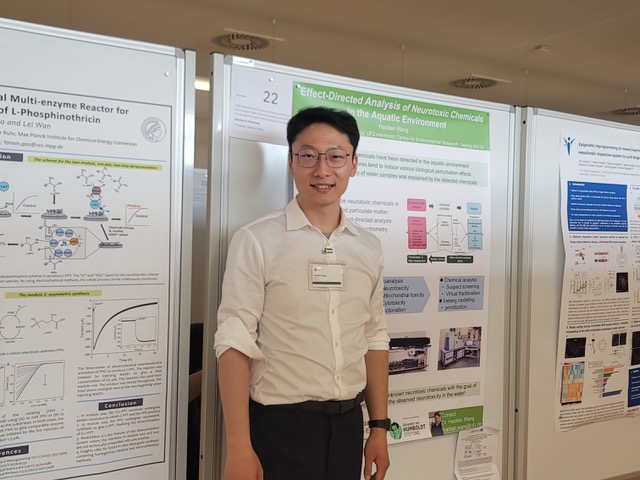Department News
Hot Papers
Our contributions were improved prediction models for in vitro toxicity.
Team News
What an exciting week at SETAC Europe 2025 in Vienna!
We are very pleased that we were able to present our current research work both in presentations and at the Poster Corner. It was great opportunity to share our results with the international community community and to receive valuable feedback.
Particularly inspiring were the numerous sessions on New Approach Methodologies (NAMs) and the assessment of the chemical exposome - topics that are topics that are more topical than ever and provide important impetus for future research.
In addition to all the exciting scientific content, it was also a wonderful opportunity to meet up with old acquaintances, make new contacts and exchange ideas in a exchange ideas in a personal setting.
Present were: Elena Hommel, Naroa Lopez, Vanessa Srebny & Julia Huchthausen - a great team with a passion for environmental research and innovative methods.
Hot Papers

New partnership
On 10 October 2024 we kicked off the project "Developing high-throughput experimental and computational tools for safe-by-design chemicals – Proof of principle for antioxidants”- a collaboration between Eawag, ETH Zürich, University of Zurich and UFZ funded by the Swiss National Science Foundation and led by Prof. Kathrin Fenner. We welcome Bernadette Mederer into the Zelltox team as the UFZ PhD student in this project. More info on Link

Poster Presentation
We welcome Haotian Wang from Beijing for a two-year postdoc sponsored by the Humboldt foundation. Haotian gave a poster presentation about his project at the Humboldt Network Meeting in Magdeburg from 24 to 26 April. In his project at UFZ, he will identify neurotoxic chemicals in the aquatic environment by integrating data science with impact-oriented analysis using high-throughput bioanalytical tools.

Final Theses
We are now offering experimental theses again.
If you are interested in writing your Bachelor or Master Thesis at the department of Cell Toxicology you can contact Beate Escher or you can express your interest by clicking here.
